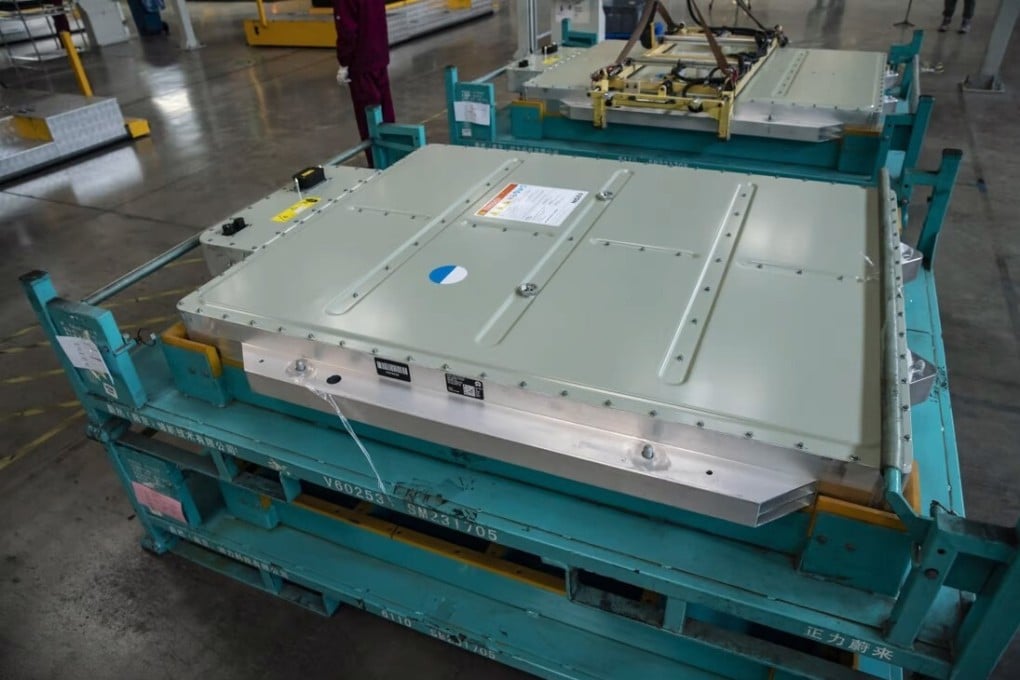Urgent need for EV battery industry to expand and be more sustainable to meet future demand, analysts say
- Rapid electrification of the transport sector, which accounts for around 25 per cent of global greenhouse gas emissions, means battery production needs to expand
- Ramp-up also poses challenges, such as raw material availability, more sustainable battery production methods and greater innovation

A surge in electric vehicle (EV) sales to meet net-zero climate targets requires an immediate scale-up of EV battery production and relevant infrastructure, adding to pressure on governments and industry leaders to get on top of raw material, innovation and sustainability challenges, analysts say.
The global stock of electric cars increased by over 40 per cent year-on-year in 2020, hitting 10 million units, against a decline of more than 15 per cent for the overall car market in the aftermath of the pandemic, said the International Energy Agency (IEA) at an event during COP26 in Glasgow last week, using data from its 2021 outlook.
In the first three-quarters of this year, the global EV market has recorded a nearly 50 per cent year-on-year increase in sales compared to the same period a year ago, according to IEA, leading the agency to set EVs as one of only two technologies out of the 46 it assesses as being on track towards net zero emissions by 2050.
The rapid electrification of the transport sector, which accounts for around 25 per cent of global greenhouse gas emissions, means there is a need for an immediate expansion of battery manufacturing and related supply chains, says the IEA. It said that for the world to have a pathway to net-zero emissions by 2050, over 6.5 terawatt-hours (TWh) of battery production capacity will be needed by 2030.
“Think of that in terms of the number of giga-factories that need to be installed every year from now to 2030 – we‘re talking about 20 giga factories each year,” said Leonardo Paoli, an energy analyst at IEA, basing the battery demand off the massive battery factories initiated by Elon Musk’s Tesla.